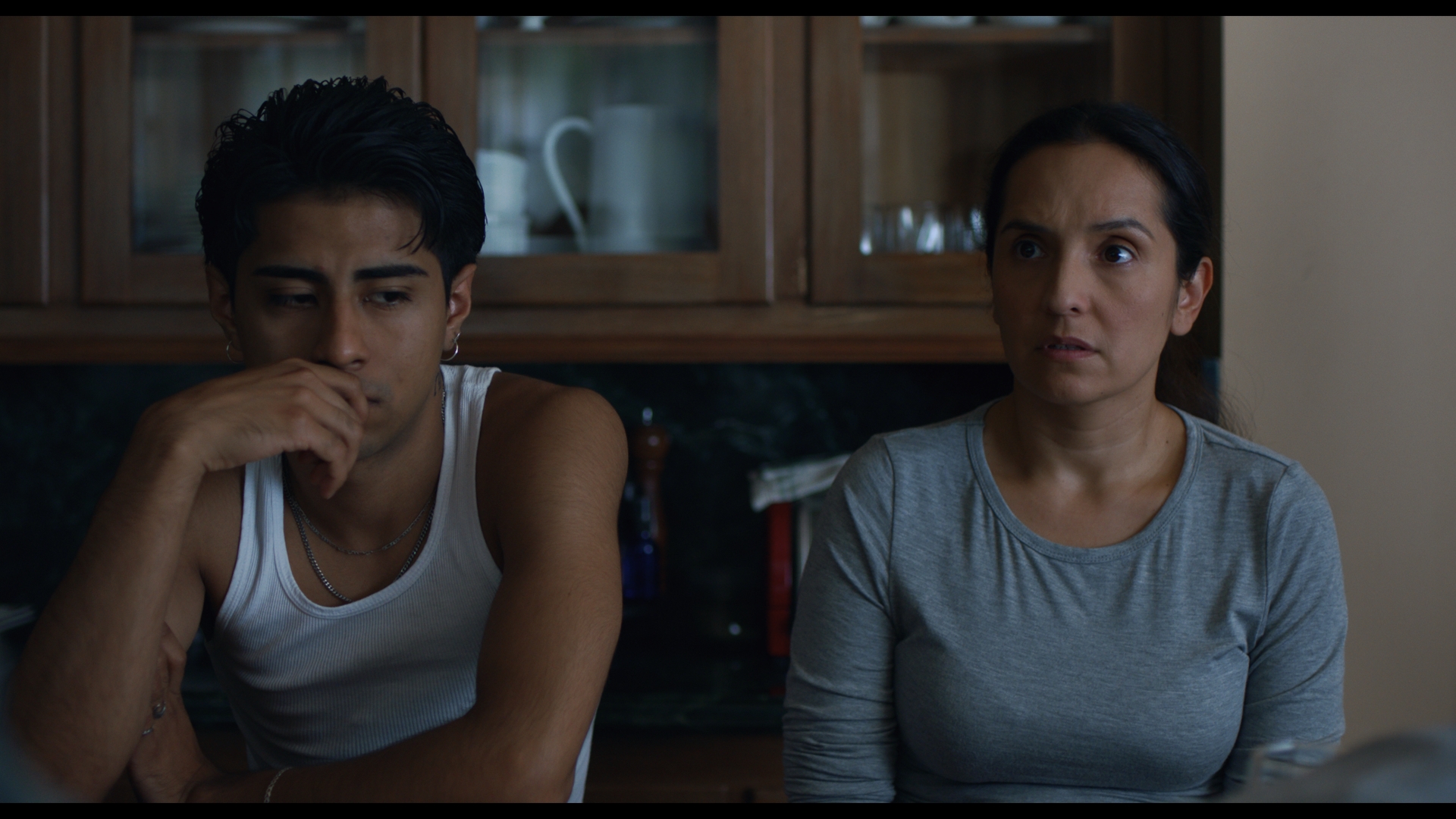White supremacy is scary as fuck. It’s the evil idealogy powered by the colonial world order, creating a hierarchy of humans as if light skin can equate to worth rather than simply the absence of melanin. It makes no sense scientifically or even as a coherent ideology but it’s the archaic system we’re all living under. And it’s the subject of the new thriller At the Gates out in select theaters now.
Since Jordan Peele’s Get Out, many have tried to replicate his concept of racialized, social commentary horror, casting white supremacy as the villain. These works, like writer-director Augustus Meleo Bernstein’s At the Gates, walk a thin line between showing the terror exacted upon brown and Black bodies and glorifying it.
Now, skin color doesn’t determine if someone resists or upholds white supremacy. If it did, that would mean the idealogy had some inherent sense to it. It doesn’t. Instead, it dispenses benefits based on proximity to an idealized, imaginary, pure white identity. But even people who reject the idealogy of white supremacy can find themselves taking advantage of the privileges they get based on where they are in its system. You see, we all have to do a calculus, weighing to various degrees their moral compass, personal stakes, and proximity to whiteness, arriving at when to resist, when to capitulate, when to upload, and to what degree.
It’s a system that when combined with capitalism makes us all guilty, if to different degrees. So for those of us who seek to upturn the system, the goal cannot be to be pure but to be less guilty. And that dynamic can obscure all sorts of behaviors, the good, the comprised, and the truly evil.
“At the Gates” exists inside that obscurity. It opens with Ana (Vanessa Benavente) taking her son Nico (Ezekiel Pacheco) to work with her for the day. They leave their humble apartment, taking the bus to a rich, white neighborhood where Ana has been cleaning one of the mansions for years. She’s proud of her work, of taking something from dirty to clean, and proud of her son who’s getting ready for college. The home and the film are filled with neutral colors, mostly whites, making the white family seem both blank and conspicuous.
Ana and Nico are about to head home for the day when there’s a knock on the door. It’s the police. Wife Marianne (Miranda Otto) gets the patriarch of the family Peter (Noah Wyle) to go out and talk to them. We don’t hear their conversation or the one afterward between the two homeowners – we only know that it is fraught and takes a long time.
Eventually, Marianne explains to Ana and Nico that it was ICE conducting a raid. She says the border agents have their names and addresses and are planning to deport them – but she’s concocted a plan to save them, turning a basement closet into a secret bedroom where Ana and Nico can stay. Marianne tells them they can hide there and keep cleaning the house (for money) as long as needed.

To Ana, it feels like help and she quickly adjusts to a new normal where she cannot leave her place of employment or even go the window. Nico thinks something nefarious is underfoot. How did they make up the room so quickly? Why are they stuck in a closet where the door locks from the outside? What are these, condescending, rich white folks hiding?
I won’t give anything away, but I will report that the mystery is equally terrifying and compelling, ratcheting up the suspense and sense of unease throughout the film’s 97 minutes, until we finally arrive at a satisfying conclusion.
As such, At the Gates doesn’t try to replicate Get Out’s humor or even the ambitious scope of its social commentary. Instead, At the Gates goes its own way, focusing on the undocumented, domestic worker experience and how the inherent vulnerability in that position is a site of horror.
That it does so with compelling performances from each of its small cast, a set design that reflects its themes, and a deep understanding of how to build, release, and build suspense again, makes it a phenomenal Get Out successor. And proof that filmmakers outside of Jordan Peele can and should aim to depict white supremacy as the terror it is in film and beyond.
At the Gates is screening in select theaters now.

